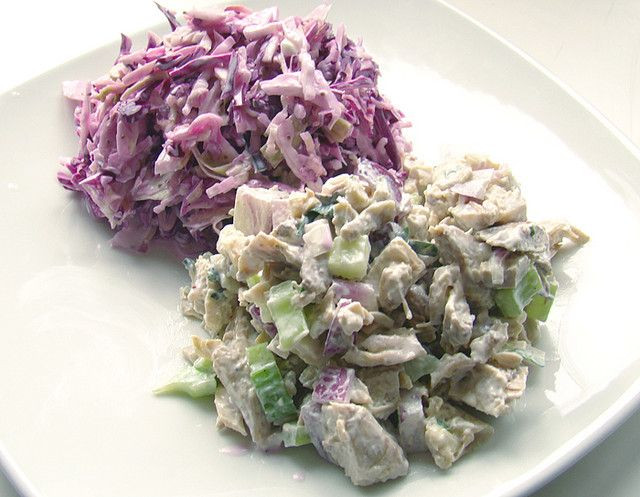Boston Salads Recalls Chicken Salad Due To Possible Listeria Contamination

Boston Salads and Provisions Company Inc. is recalling over 200,000 lbs. of chicken salad products due to a possible Listeria contamination, the U.S. Department of Agriculture (USDA) said in a statement. The recall comes on the heels of another multi-state recall of ready-to-eat products that could be contaminated by the bacteria.
The Boston-based company is recalling 222,959 lbs. of pre-packaged chicken salad that was produced between Aug. 23 and Oct. 14, and is being sold in Massachusetts and New Hampshire. The products may have sell-by dates ranging from 9/13/2013 to 11/4/2013 and contain the establishment number “P-17999” inside the USDA mark of inspection.
The recall spans over six particular brands: Boston Salads, Dietz & Watson, Market Source, Price Chopper, Northern Haserot, and Rachel’s Gourmet. The issue was discovered after the New Hampshire Department of Public Health tested two different product samples and found that they were contaminated with Listeria monocytogenes. No illnesses have been reported so far.
Listeria monocytogenes cause the bacterial infection Listeriosis, a possibly fatal infection for children, pregnant women, and people with compromise immune systems. People with minor infections can experience fever, muscle aches, nausea, and diarrhea. But it can cause stiff neck, confusion, loss of balance, and convulsions in people whose infection spreads to the nervous system. Pregnant women can have miscarriages, stillbirths, and premature delivery.
The recall comes less than a week after Beaverton, Ore. company, Reser’s Fine Foods found that about 109,000 cases of its ready-to-eat chicken, ham, and beef products could be contaminated with Listeria. The products were shipped to retailers and distributors throughout 27 states, including Louisiana, Colorado, Michigan, and New York.
Reser’s recall led Taylor Farms of Jessup, Md. to also recall about 5,000 lbs. of broccoli salad kits that contained bacon made by Reser’s. The salad kits were shipped to Connecticut, Delaware, Maryland, Massachusetts, New Jersey, New York, and Vermont. No illnesses were reported in this case either.
Keeping everything clean — from hands to cooking utensils and food preparation services — is he best way to avoid Listeria contamination. Scrubbing raw vegetables and cooking food thoroughly can also prevent infection. People who are particularly at risk for infection should avoid soft cheese such as brie, feta, and blue cheese; hot dogs and other deli meats; meat spreads; and refrigerated smoked seafood, such as nova style, lox, kippered or jerky, according to Mayo Clinic.
Published by Medicaldaily.com



























